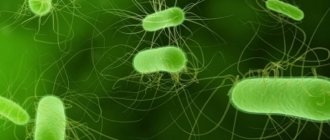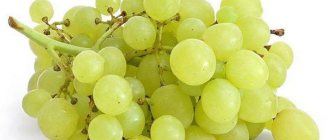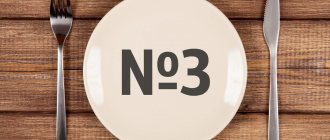The gastrointestinal tract is one of the main systems in the human body. It is she who is responsible for the digestion and absorption of all nutrients coming from food and the removal of processed waste products.
Poor nutrition can cause many problems related to digestion: from banal dyspeptic disorders (heartburn, bloating, nausea, stool disorders) to serious diseases requiring medical attention (gastritis, duodenitis, ulcerative colitis, GERD, etc.).
It is necessary to control your diet and eat more healthy foods. This will not only prevent, but also alleviate a number of pathologies, as well as improve the general condition of the body due to the accelerated elimination of toxic metabolites.
Below are 13 foods that improve the functioning of the stomach and intestines, promoting good digestion.
Dairy products
Fermented milk products contain a lot of beneficial bacteria, yeast, proteins, minerals and essential amino acids that cannot be synthesized by the body on its own. Such products are well absorbed, since they are already partially broken down by bacterial agents.
According to scientists, microorganisms in fermented milk products stimulate secretory activity (increase the production of digestive juices), prevent putrefaction processes (it is these processes that lead to bloating and stool disorders), and normalize peristalsis.
Russian biologist I.I. Mechnikov believed that one of the main reasons for the aging of the body is the effect of poisons, the formation of which occurs as a result of the activity of putrefactive bacteria. An acidic environment creates an unsuitable habitat for pathogenic flora. Therefore, the professor recommended consuming kefir, yogurt, and yogurt more often.
Kefir contains large amounts of tryptophan, which helps relax the smooth muscles of the intestines. It is recommended to drink the drink for any digestive disorders or prolonged fasting (which is why it is part of most diets).
According to Brazilian microbiologists, kefir inhibits the activity of enterobacteria, clostridia and other pathogenic agents, and is effective during the rehabilitation period after surgical interventions in various parts of the gastrointestinal tract. The product is even used to treat gastric and duodenal ulcers.
Yogurt contains a large number of probiotics, which represent beneficial flora, contribute to the inhibition of the vital activity of pathogenic and opportunistic microorganisms in the intestinal lumen, thereby preventing the development of dysbiosis. This is relevant for pathologies of the immune system and long-term treatment with antibiotics.
It has been proven that probiotics improve the absorption of lactose even in individuals who are intolerant to this component. Helps prevent functional disorders of the gastrointestinal tract (constipation or diarrhea).
Fermented milk products contain many beneficial bacteria that improve all components of the nutrient absorption process and prevent the development of diseases in the gastrointestinal tract. They definitely need to be included in the diet.
General rules
The intestinal tract is the most important component of the digestive system. It is in the intestines that the main processes of food digestion/absorption of nutrients into the blood and removal of toxins . The intestine is represented by two main sections: the small intestine, including the duodenum, jejunum, and ileum, and the large intestine, represented by the cecum, colon and rectum. The small intestine begins at the pylorus of the stomach and ends at the ileocecal valve , connecting the small and large intestines, which ends at the anus. The movement of food occurs due to peristaltic contractions. The main functions of the intestine are:
- secretion of digestive enzymes , hormones , mucus (duodenum);
- the process of cavity membrane breakdown of BZHU (throughout the entire small intestine);
- adsorption of amino acids , glucose, electrolytes, vitamins , liquids from processed food (small/large intestine);
- formation of feces, with active absorption of water (large intestine);
- endocrine function - synthesis of hormones: peptide , secretin , neurotensin ;
- synthesis of vitamins B12 and K .
- participation in the formation of immunity a - the intestinal immune system is represented by: lymph nodes, Peyer's patches, appendix.
Diseases of the small/large intestine are among the common diseases of the gastrointestinal tract. Conventionally, they can be divided into: inflammatory diseases ( enteritis , colitis , enterocolitis , Crohn's disease ), functional (intestinal dyspepsia , irritable bowel syndrome, dyskinesias ) and intestinal tumors (the vast majority are malignant). In the occurrence/development of intestinal diseases, the leading role is played by heredity, diseases of the upper gastrointestinal tract ( gastritis , peptic ulcer , pancreatitis ), intestinal infections, dietary errors, taking certain medications, excess body weight, stress, hypovitaminosis , lack of microelements, bad habits, physical inactivity .
Common symptoms of intestinal diseases include: abdominal pain, constipation / diarrhea , bloating, flatulence , nausea, blood/mucus in the stool, less often - increased body temperature, signs of intoxication, weight loss.
Diet therapy is the most important method of treating intestinal diseases, since proper nutrition ensures sparing of the intestines, allows you to relieve inflammation and normalize function in the shortest possible time. Despite the large list of intestinal diseases that can occur in acute/chronic form and manifest themselves in various symptoms, a therapeutic diet for the intestines is based on therapeutic Tables No. 3 and No. 4 ( 4A , 4B , 4B ), which are prescribed taking into account functional intestinal disorders, forms and stages of the disease.
Despite such diversity/differences in the range of products, they are all united by the most important principle of nutrition for intestinal diseases - maximum sparing from various negative impact factors, which is achieved by eliminating the negative mechanical/physical/chemical influence of food (optimal temperature of dishes, excluding a number of products, food consistency , methods of culinary processing of products), adherence to the regimen/principle of fractional meals, and thorough chewing.
A big problem for the majority of the population is neglect of preventive measures that avoid/reduce the risk of intestinal diseases. First of all, this is the lack of a nutritional system aimed at improving the health of the body in general and the intestines in particular. There are no uniform nutritional recommendations for all occasions, but it is important that your diet is focused on your health status, gender, age, and physical activity.
The basis of the diet is healthy food and a balanced diet. At the same time, it is extremely important to learn how to choose, combine foods and prepare healthy foods. An incorrectly selected nutritional system can have negative consequences for various organs and systems of the body. Thus, a high-protein diet is fraught with disruption of the intestinal microflora, the development of constipation and symptoms of endogenous intoxication.
To normalize and improve the functioning of the body, it is recommended to carry out regular intestinal cleansing, since it is in the intestines that waste products accumulate/stagnate, disrupting its normal functioning and affecting overall well-being/performance. The most common signs of intestinal “clogging” are: chronic fatigue, frequent headaches , gray/pale complexion, bad breath, feeling of heaviness in the stomach, insomnia /restless sleep, dry and flaky skin , rash. There are various methods of colon cleansing - mechanical: enema (in the absence of problems with the large intestine), colon therapy (after consulting a doctor, in a hospital setting) and a cleansing diet.
Mechanical procedures should be as gentle and safe as possible, but even in this case, it is not recommended to abuse cleansing enemas, since one may become accustomed to such stimulation, which can lead to problems with independent bowel movements, especially with frequent constipation . In addition, abuse of this procedure can lead to dysbiosis , vitamin deficiency and disruption of the digestive process. In this regard, the colon cleansing diet is a gentle method. Nutrition for bowel cleansing is based on the following principles and restrictions:
- Regular meals at a certain time and at least 4 times a day in small portions, which synchronizes the secretion of digestive juices and the motor activity of the gastrointestinal tract.
- Refusal to eat dry food, the volume of liquid should be at least 1.5 liters/day. Lack of fluid contributes to thickening of bile, development of constipation, and intestinal motility disorders.
- Exclusion from the diet of refractory animal fats (fatty red meat, fatty dairy products, confectionery creams, fast food products, impair the motor activity of the stomach, increase intestinal motility, promote weight gain, are potential carcinogens).
- Minimizing the consumption of smoked meats and products containing food additives (stabilizers, preservatives, dyes) that negatively affect the intestinal microflora and liver cells. It should be remembered that with excessive consumption of foods containing indigestible proteins (fatty lamb, pork, goose/duck) due to insufficient enzymatic decomposition of proteins/incomplete absorption, putrefactive dyspepsia , manifested by bloating/heaviness, abdominal pain, loose stools with discharge foul gases.
- Limiting the consumption of simple carbohydrates (sweets, baked goods, sugar), which cause putrefactive fermentation in the intestines as a result of not digesting a large amount of carbohydrates with the appearance of bloating/distension of the abdomen, rumbling, loose stools with foamy feces and the presence of gas bubbles on their surface/remnants of undigested food and copious release of gases. Do not overuse foods rich in essential oils (green/onions, radishes, garlic, radishes, rutabaga, mustard, horseradish) and spicy foods, as they strongly irritate the gastrointestinal mucosa.
- The diet for cleansing the intestines should contain, first of all, foods containing dietary fiber (vegetables/fruits, berries, bran, grains, leafy greens), which improve the chemical composition of bile, normalize intestinal motility, prevent constipation, stimulate the reproduction/growth of normal intestinal tract flora, remove toxins/radioactive compounds/carcinogens, normalize cholesterol metabolism. For this purpose, it is better to use so-called “brush salads” for the intestines - white cabbage, carrots, celery root, beets in various proportions in their raw form (finely chopped, without salt, seasoned with vegetable oil). Also, for this purpose, it is recommended to consume bran before meals (2 tablespoons with 200 ml of water), which, when combined with liquid, swell greatly and stimulate peristalsis. Also, in addition to raw/boiled vegetables, it is important to include whole grain products (porridge, sprouted wheat, whole grain bread, brown rice) and dried fruits (prunes, figs, dried apricots) in your diet. This diet is especially useful for “lazy bowels” (sluggish bowel syndrome), which occurs in people with poor diet/insufficient fluid intake due to physical inactivity and prolonged stress.
The most important component of the diet when cleansing the intestines should be low-fat fermented milk products (airan, yogurt, koumiss, kefir, acidophilus, cottage cheese, fermented baked milk, yoghurts). They suppress putrefactive processes in the intestines, improve intestinal motility, and eliminate constipation (it is important to know that fresh kefir eliminates constipation, while a 3-day-old drink, on the contrary, strengthens stool).
Quite often, especially while taking antibiotics , there are changes in the physiologically normal composition of the intestinal microflora, mainly opportunistic opportunistic microorganisms - Citrobacter , Proteus , Klebsiella , yeast-like fungi, which significantly affects intestinal function.
To restore microflora, the diet must contain “prebiotic” dishes/products, in particular fermented milk drinks enriched with bifido / lactobacillus , chicory root, raw garlic, Jerusalem artichoke, pumpkin, artichoke, raw onion, soybeans, asparagus, wheat bran. If there is no effect, it is recommended to take synbiotic drugs: Normoflorin , Eubicor , Bioflor , Bion-3 , Algilak , Bifainol , which contain both pro- and prebiotics .
Apples
An apple consists of approximately 77% water, the rest of the volume belongs to dietary fiber (pectin and cellulose), organic acids, vitamins (A, B1, B3, ascorbic and nicotinic acids), macro- and microelements (potassium, calcium, iron, magnesium, phosphorus, sodium).
The most important role, according to scientific sources, belongs to pectin, which during the digestion process binds to a number of harmful substances (mercury, lead, cobalt, cholesterol) and promotes their removal from the small intestine. Once in the end sections of the digestive tube, pectin is broken down by bacteria and absorbed.
Apples normalize the formation of feces. Since ancient times, they have been used to treat constipation and diarrhea. To do this, it is enough to eat 1-2 ripe fruits in the morning for several days. Apples also stop the growth of cancer cells due to their antioxidant effect.
Apples are widely used in dietetics. They contribute to the rapid development of a feeling of fullness in the stomach, but contain few calories. This feature also leads to an increase in stool volume and the elimination of fecal stones. Research is underway regarding the anti-inflammatory effects of apples.
Apples, due to their dietary fiber content, normalize the movement of feces through various parts of the gastrointestinal tract, remove toxic substances and can have a beneficial effect in inflammatory processes.
Colon cleansing diet for ten days
The most common therapeutic nutrition option for cleansing the intestines is a ten-day diet. It is not very easy to withstand it, however, as reviews indicate, the result is really worth it.
Every day you should start with a glass of still mineral water, drunk on an empty stomach. You can also use regular boiled water with lemon juice.
The first and second days of the diet are considered fasting. The diet during this period is limited - only green tea is allowed, which can be sweetened with a spoonful of honey, as well as green apples.
Start the third day with oatmeal cooked in water, without adding salt or sugar. For lunch you can eat 200 g of boiled lean beef. A ripe tomato is allowed as a vegetable. In the evening, the menu will consist of boiled rice (200 g, it is better to choose brown rice), the taste of which can be varied with soy sauce or olive oil. Complete your daily diet with tea with lemon, but without sugar.
On the fourth day, breakfast will again consist of oatmeal cooked in water. For those who lack energy, you can treat yourself to a cup of unsweetened coffee. Lunch on this day will be meager: two medium-sized apples and a glass of water with lemon juice. For dinner you are allowed to eat a large apple and an orange.
The morning of the fifth day will begin with natural yogurt or low-fat cottage cheese (up to 150 g), as well as a salad of one medium-sized grated carrot. Use lemon juice as a dressing. For lunch, you are allowed to treat yourself to baked potatoes and two hard-boiled eggs. Also prepare a salad of tomatoes and cucumbers, which you can season with a little olive oil. The evening meal will consist of boiled rice (200 g), to which you can add a little olive oil or soy sauce. Unsweetened tea with lemon will complete the dinner.
The sixth day has prepared for you the same Hercules on the water. As a reward for “crossing the equator,” treat yourself to unsweetened coffee. You will also have to have oatmeal for lunch; Drinks allowed are water with lemon juice. But for dinner, the menu will consist of rice (200 g), the taste of which will be improved by adding olive oil or a drop of soy sauce.
Breakfast on the seventh day will consist of a cup of unsweetened coffee. But for lunch you can afford light vegetable soup and low-fat cottage cheese (150g). Finish your meal with an apple. In the evening, drink a glass of low-fat kefir.
On the eighth day in the morning, prepare oatmeal porridge, and also treat yourself to an orange and an apple. For lunch, drink a glass of low-fat kefir. For dinner, a reward for a meager daily diet will be boiled fish sprinkled with lemon juice and two oranges as dessert. End the day with tea without sugar.
The ninth day should start with a glass of low-fat kefir. At noon, boiled fish and a glass of unsweetened tea are recommended. For dinner, you can afford boiled lean beef (200 g) with a side dish (rice). Dessert will be three small apples.
The final day of the diet involves a glass of kefir for breakfast. For lunch, drink a cup of tea sweetened with honey. For dinner, you can treat yourself to boiled brown rice, the taste of which will be improved by adding a few drops of soy sauce or olive oil. An orange is offered for dessert, and you can finish the meal with unsweetened tea with lemon.
Due to the low calorie content, serious physical activity is contraindicated while following this diet. For those whose work involves intellectual tension or stress, it is better to conduct a colon cleansing marathon during the holidays.
Cereals
Whole grain fibers (oats, wheat) improve digestion processes. Cereals have the following positive properties:
- Eliminate constipation. A large meta-analysis showed that cereals not only eliminate stool retention, but also normalize its consistency and stool frequency. The effect is comparable to popular laxatives (for example, lactulose).
- Improves intestinal microbiocenosis. Components of dietary fiber (inulin, starch, oligofructose) are a nutrient medium for most beneficial microorganisms living in the human intestine.
Thus, cereals normalize digestive processes by creating optimal conditions for the life of “good” microorganisms and preventing constipation.
Bran
Bran, although a by-product of grain processing, is important in the human diet.
Bran, like whole grains, creates optimal living conditions for bacteria in the intestines, and also increases the mass of smooth muscle cells, which has a positive effect on the motility of the digestive tube.
Scientific research shows that bran can bind to a large complex of toxic compounds and bile acids, removing them unchanged from the body. Such ballast substances are extremely important for the whole organism, as they participate in complex physiological processes.
There is convincing evidence that bran can prevent the development of hemorrhoids, pancreatitis, diabetes, dyslipidemia and even malignant diseases.
Bran normalizes intestinal motility, improves the conditions for the existence of beneficial flora, which has a beneficial effect on all stages of nutrient absorption.
Beet
Beets contain betaine and betanin, which are involved in fat metabolism and normalize liver function. Beets are also rich in fiber, which stimulates the production of digestive juices, which accelerates enzymatic processes and increases the rate of movement of chyme in the lumen of the gastrointestinal tract.
In addition, beets support the growth of essential microorganisms. At the same time, the availability of a nutrient medium for bacteria is extremely high. For example, from 136 g of beets unchanged, as much as 3.4 g of fiber reaches the large intestine, which is significantly more than most other plants.
The role of beets as a laxative and anti-inflammatory agent is currently being actively discussed. Clinical trials are underway regarding the feasibility of treating Crohn's disease with this vegetable.
We can conclude that beets are necessary for maintaining digestive processes, as they improve the secretion of gastric juice and create good conditions for the life of bacteria. Beets are recommended for hypofunction of the exocrine glands.
Here are 10 healthy foods that are richest in coarse plant fibers.
1. Whole grain bread. One of the most accessible sources of fiber, microelements and vitamins is wholemeal bread. Rye bread is considered to be the healthiest: it is low in calories and contains a lot of dietary fiber, which lowers blood sugar and cleanses the digestive tract. By the way, rye bread is often included in therapeutic diets, as 2-3 pieces a day help normalize digestion.
2. Bran and grains. A plate of cereal with pieces of fruit for breakfast provides almost 14 grams of fiber in its pure form. For example, a bowl of oatmeal covers a quarter of a person’s daily requirement for fiber, and the starch contained in oats is slowly digested and absorbed, providing a feeling of fullness for a long time.
3. Lentils and other legumes. One cup of cooked lentils contains about 16 grams of fiber. Moreover, it is a unique source of iron and zinc, and also does not accumulate toxins, and therefore is considered an environmentally friendly product. Other legumes are also rich in dietary fiber. A cup of black beans contains about 15 grams of fiber, and a cup of kidney beans contains 13 grams. In general, all legumes are a healthy addition to the diet. But they need to be added to the diet gradually in order to avoid increased gas formation and bloating.
4. Berries: raspberries, strawberries, blueberries, gooseberries. Most berries are very high in fiber. One cup of raspberries, which are virtually intact when processed, contains 8 grams of fiber and only 60 calories.
5. Avocado. Avocados are high in fiber: one medium fruit contains about 12 g of healthy fiber. This fruit can improve the composition of intestinal microflora, enhance peristalsis and is a preventative against constipation.
6. Almonds, pistachios and other nuts. Quite high in calories (1 ounce serving contains 161 calories), almonds are high in nutrients: nearly 13 grams of unsaturated fat and 3.4 grams of fiber—about 14% of your daily recommended intake. Pistachios have fewer calories, but they also have enough benefits. American scientists have found that to increase the elasticity of arteries and lower cholesterol levels by 8.5%, it is enough to eat 70-80 grams of pistachios a day. By the way, they can be consumed separately or added to porridge, yogurt, baked goods or sauces.
7. Pears are also rich in healthy fiber: a medium-sized fruit contains up to 5 g of fiber. This fruit contains more fructose than glucose (as you know, fructose does not require insulin for its absorption in the body), and therefore is considered useful for impaired pancreatic function.
8. Flaxseeds contain both types of fiber - soluble and insoluble, and provide 2.8 grams of fiber per tablespoon. Flaxseed oil is often used as a laxative, and flax products reduce blood cholesterol levels. When used internally, the gastrointestinal tract is enveloped in the mucus they secrete, which is beneficial for ulcers, gastritis and other inflammatory processes. The high mucus content in flaxseed protects the inflamed mucous membrane of the esophagus and gastrointestinal tract from irritation and reduces the absorption of toxins. Flax seeds facilitate the elimination of undigested food debris, which has a positive effect on constipation and obesity.
9. Dried fruits: raisins, prunes. Prunes have a beneficial effect on intestinal function, and one of the reasons for this is their high fiber content (3.8 g per half cup). Other dried fruits are also rich in fiber. To improve digestion, it is recommended to add figs, dates, raisins, apricots or other dried fruits to your diet as a snack between meals. However, it should be remembered that dried fruits are very high in calories, and you should not eat them in large quantities.
10. Green vegetables. Green leafy vegetables are an excellent source of iron, beta-carotene and insoluble fiber. One cup of spinach, turnip leaves or beets contains 4 to 5 grams of fiber. Also among the leaders in fiber content among vegetables are cauliflower, green bell peppers, broccoli, radishes, black radish, savoy cabbage, beets, cucumbers, carrots, celery, asparagus, kohlrabi, zucchini.
Photo: wavebreakmedia / freepik.com
Ginger
Ginger root is rich in vitamins and microelements that have antiseptic properties (they destroy pathogenic bacteria on the way to the stomach, are effective against helminths) and increase the activity of digestive enzymes (the effect on lipase has been proven).
An important role is played by gingerol, which stimulates the secretion of bile into the gastrointestinal tract (indicated for the treatment of biliary dyskinesia of the hypomotor type). The product also protects the mucous membrane from exposure to any aggressive substances.
Important properties are the elimination of dyspeptic disorders (nausea, vomiting, heartburn, feeling of fullness of the stomach) by accelerating the evacuation of food particles from the stomach. Ginger quickly eliminates gastroduodenal sphincter dysfunction. Such effects are scientifically justified.
Consequently, ginger is indicated for functional disorders of the stomach, which are extremely common after surgical interventions.
Lemon
Lemons are approximately 10% carbohydrates, which are represented by simple sugars and soluble fibers, and contain a large amount of pectin.
Lemon effectively removes toxic substances from the intestines and slows down the absorption of various sugars and starch, which has a very beneficial effect on the glycemic background. However, to obtain the benefits, it is necessary to consume the pulp, not the juice.
Lemon should be consumed for food poisoning and for the complex treatment of diabetes.
Green vegetables
Vegetables colored green (broccoli, spinach, Brussels sprouts) are a source of insoluble fiber, which improves intestinal motility and speeds up the passage of food within standard speed limits. This helps eliminate constipation and speed up metabolism.
Green vegetables, according to American scientists, are also rich in various microelements, in particular magnesium, which increases the tone of smooth muscles, leading to faster excretion of feces.
Spinach has a separate set of properties. It is capable of capturing a number of toxic substances, including decay products, and removing them from the body.
Sugar compounds, which are extremely abundant in leafy greens, create a favorable environment for the proliferation of beneficial flora. In addition, Brussels sprouts inhibit the processes of protein synthesis in pathogenic microorganisms.
Green vegetables normalize the contractile activity of the intestine and form a “healthy” intestinal microbiocenosis.
Food that causes colon cancer
Rightly fearing cancer, many people are interested in whether there is a certain “product” in nature that causes intestinal cancer. Oncologists assure that there are at least several such products, and if a person wants to maintain his health, he needs to limit their consumption or completely eliminate them from his diet:
- fatty foods with added spices. It is known that excess oils, sauces and spices, subjected to frying, are a direct source of carcinogenic substances that provoke the degeneration of healthy intestinal cells and, as a consequence, the occurrence of a malignant process;
- red meat. If consumed in moderation, it does not pose a danger, but with constant and abundant presence in the diet, the risk of cancer becomes much higher;
- food additives. It has been proven that flavor enhancers, sweeteners and preservatives, which make store-bought baked goods always seem fresh and aromatic, clog the body and provoke not only excess weight, but also cancer in the intestinal tract;
- fast food. Anything is added to it, including palm oil (since it is very cheap) and other harmful flavor enhancers. They often cause food addiction in a person and an irresistible desire to eat fast food again and again. All this together is one of the main “provocateurs” of various diseases, including cancer;
- excessive consumption of alcoholic beverages. Everything is very clear here, since alcohol destroys the body as a whole, including having a pathogenic effect on intestinal cells;
- excess sugar and sweets.
Of course, this does not mean that all people should urgently switch to vegetarianism and a raw food diet in order to avoid malignant tumors. The main thing is to adjust your diet, especially paying attention to foods that are harmful beyond any doubt.
Mango
Mango is rich in digestive enzymes - amylases, which are involved in the breakdown of complex carbohydrates and increase the biological value of the food consumed. Mango is also rich in dietary fiber, therefore, can be consumed for bowel problems such as constipation or diarrhea.
One large study showed that eating mangoes was much more effective than taking soluble fiber for treating long-term constipation.
We can conclude that mango improves the energy value of food, in particular complex carbohydrates, which are essential for our body. The fruit also helps prevent constipation.
And most importantly
Cleansing the body is impossible without regular intake of sufficient water. If there is not enough of it, then all metabolic processes will slow down and any diet will turn out to be a pointless waste of time.
Water is needed for the proper functioning of organs. The state of a person’s psyche depends on it. When dehydrated, the body as a whole suffers. People are accustomed to replacing clean water with sweet carbonated drinks, tea, coffee, which is fundamentally wrong. Thus, in America, about 75% of people suffer from chronic dehydration. Therefore, it is extremely important to drink at least 1.5-2 liters of clean water per day.
Author of the article:
Kuzmina Vera Valerievna |
Endocrinologist, nutritionist Education: Diploma of the Russian State Medical University named after. N.I. Pirogov, specialty “General Medicine” (2004). Residency at the Moscow State Medical and Dental University, diploma in Endocrinology (2006). Our authors
Onion
Onions have antibacterial properties. The effectiveness of onions against Escherichia coli, Pseudomonas aeruginosa and staphylococci has been proven. The active substances in onions damage cell walls and membranes, causing the destruction of unwanted cells.
It is important to note that an experiment conducted in laboratory conditions showed an inhibitory effect against the bacterium Helicobacter Pylori, which infects almost 90% of the population. It is this microorganism that, according to the latest scientific data, causes the development of gastric ulcers.
Onions also form a nutrient medium for beneficial bacteria in the intestines (especially bifidobacteria and lactobacilli), strengthen the mucous membrane and increase the functional activity of local immune factors. These features reduce susceptibility to infectious and inflammatory diseases of any etiology.
Onions are indispensable for weakened immunity and the presence of hyposecretory pathologies of the stomach and duodenum.
Rules for creating a diet for intestinal pathology
A diet for the intestines for various diseases has its own characteristics, but must provide:
- maximum sparing in the amount of food received (for example, in the postoperative period until complete starvation and the transition to intravenous administration of nutritional solutions) is achieved by fractional feeding in small portions 6-7 times a day, avoiding overeating;
- elimination of irritants of any type (chemical, mechanical) - exclude dishes containing seasonings, pickles, marinades, hot sauces, anything fried, smoked, canned, alcohol; the method of boiling, stewing, steaming is allowed, the permitted set of products is dictated by the peculiarities of the functional state of the intestines;
- the patient consumes dishes of the appropriate consistency (liquid, pureed, semi-liquid, crushed);
- intake of sufficient quantities of components from food to support metabolism, energy exchange, vitamin and water balance;
- careful attitude to the composition of the intestinal flora, dysbiosis significantly worsens the prognosis of any disease (for example, excess protein food helps to suppress beneficial bacteria);
- compliance with a consistent transition to a normal diet if an acute disease was treated, compliance with requirements throughout life - in case of a chronic pathology.
The diet for intestinal disease is based on differences in functional disorders, which manifest themselves as constipation or diarrhea. Nutritionists recommend using tables No. 3 and No. 4 (with options) approved according to the Pevzner classification. They allow you to choose the right menu for a particular patient’s diet. Here are the basic requirements and tips for choosing available products to maintain a balanced diet.
Nuts
Canadian scientists claim that various nuts contain enormous amounts of insoluble fiber, which is essential for ensuring adequate digestion.
Nuts also contain many prebiotics, which accelerate the development of “good” microorganisms and inhibit the activity of pathogenic flora.
A high fiber content in the diet helps reduce caloric intake, which is important for weight loss and the treatment of cardiovascular diseases.
Thus, nuts are rich in fiber, which accelerates saturation of the body and improves digestive processes.
Colon cleansing diet for one day
There is also an express version of the cleansing diet. It is designed for one day. The basis of the diet for the day will be the so-called bread tea. To prepare it, cut 200 g of black bread, place the pieces of bread in a jar and pour boiling water (1 l). The drink must be infused for 12 hours, after which it must be strained.
A quick cleansing diet involves eating strictly according to the clock. So, at 7 am, drink a cup of green tea without sugar. After an hour, eat one small green apple and drink a glass of bread tea. At 9 am, a mixture of freshly squeezed grape juice and bread tea awaits you (both components are 100 ml). An hour later, two cups of unsweetened green tea are next. At 11 o'clock, allow yourself 100 g of white grapes and a mixture of 100 ml of bread tea and the same amount of freshly squeezed carrot juice. An hour later, you can eat grapes (100 g) and drink a glass of grape juice.
The interval before the next stage is three hours. At 15:00 two cups of green tea without sugar are next. After 60 minutes, a mixture of bread tea and freshly squeezed carrot juice (100 ml each) is recommended. At 17:00 a glass of still mineral water awaits you. An hour later, eat three bell peppers. Finally, the last step is a mixture of bread tea (100 ml) with pear or apple juice (100 ml). You need to drink this drink at 19:00. After this, only a cup of unsweetened green tea before bed is allowed.
Best materials of the month
- Coronaviruses: SARS-CoV-2 (COVID-19)
- Antibiotics for the prevention and treatment of COVID-19: how effective are they?
- The most common "office" diseases
- Does vodka kill coronavirus?
- How to stay alive on our roads?
According to nutritionists, such express cleansing effectively “unloads” the body and promotes not only cleansing of the intestines, but also weight loss.
Peach
Peach helps digestion due to its high fiber content, half of which is insoluble (1 small fruit contains 2 grams).
According to the latest scientific data, peach can be used to relieve constipation and normalize the motility of the smooth muscles of the gastrointestinal tract.
A large number of fatty acids can reduce the severity of inflammatory changes in the intestinal mucosa and improve the course of diseases such as irritable bowel syndrome, ulcerative colitis and Crohn's disease.
Peach flowers deserve special attention. They are widely used in Chinese folk medicine to increase the frequency and strength of contractions of the smooth myocytes of the digestive tube.
Thus, peaches should be taken in the presence of digestive disorders, especially when combined with chronic inflammatory pathologies.
Reviews and results
Nutrition for cleansing, restoring and normalizing intestinal function is an essential component of healing the body, improving well-being and increasing performance. Such diets contain physiological norms of food nutrients and can be practiced over a long period of time. If you constantly adhere to it, even not in a very strict version, then you can avoid intestinal diseases.
- “... In the last 2 years, problems with the intestines have appeared (pain, bloating, frequent constipation). I contacted my local doctor, who said that I needed a diet that was gentle on the intestines. Therefore, I switched to light soups, boiled chicken, steamed cutlets, low-fat cottage cheese and fermented milk products, vegetables and fruits. I cook most dishes in a slow cooker. I drank Linux. And indeed, after a month the intestines returned to normal. I think I will practice this diet often”;
- “... After an enterovirus infection, I developed chronic enteritis. Despite the relatively mild course, exacerbations periodically occur, especially associated with dietary errors. This forces me to switch to diet food, which I usually stay on for 1-1.5 months. I also take enzymes/herbal decoctions, after which the intestinal condition returns to normal, and I switch to my usual diet.”
Sauerkraut
The fermentation product of cabbage, according to laboratory observations, contains a large number of microorganisms (especially lactobacilli), which normalize the microflora and peristaltic contractions of the intestines. Surprisingly, in one serving of the dish (about 70 g) there are over 28 different stamps.
Probiotics in sauerkraut prevent the activity of harmful bacteria, reduce the absorption of various toxic substances, and help suppress autoimmune and inflammatory processes in the gastrointestinal tract.
The product also promotes the breakdown of complex fats and carbohydrates in the gastrointestinal tract, which leads to faster and more complete absorption of nutrients.
Sauerkraut is a natural source of a large number of beneficial microorganisms and contains enzymes that improve the processes of breakdown and absorption of food.









